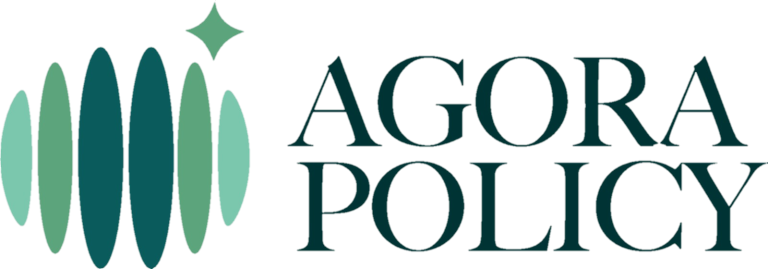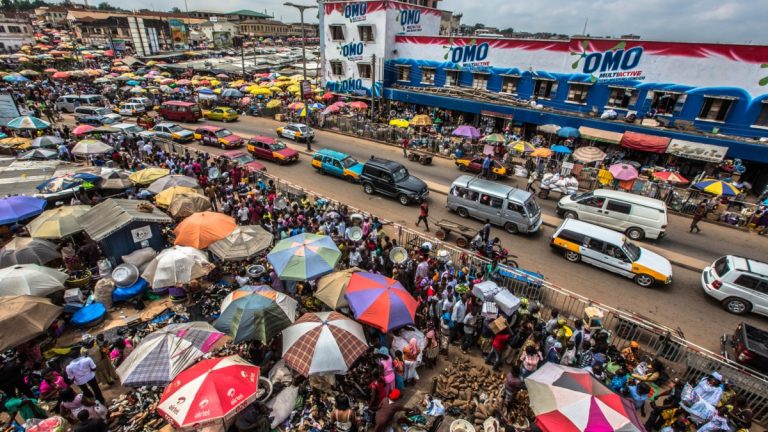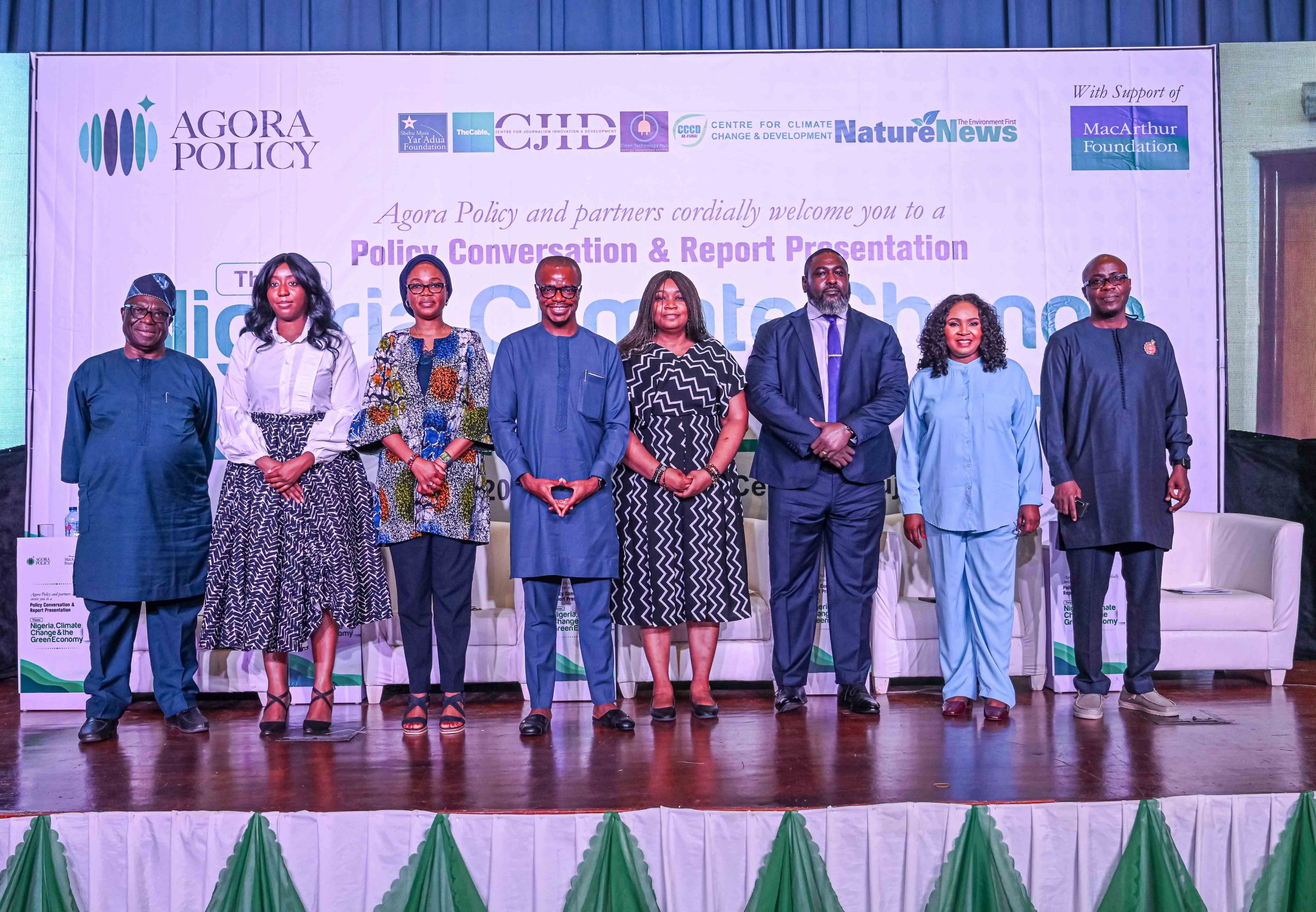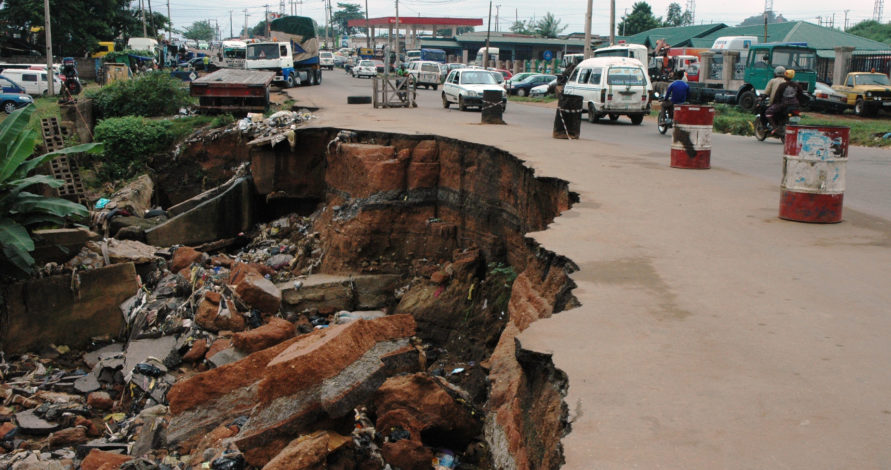16 October 2022, Abuja—Nigeria needs to undertake swift and audacious reforms to stop the rapid decline of its economy and the resultant negative impact on its citizens, a report released today (Monday) by Agora Policy, an Abuja-based policy think tank, has advised.
Entitled “Options for Revamping Nigeria’s Economy,” the report maintains that despite posting positive GDP growth in six consecutive quarters and having the biggest GDP in Africa, Nigeria’s economy is not in sound health.
“Many of the macro-economic fundamentals have worsened and the level of inclusive development is low,” says the report which analysed Nigeria’s economic datasets from 2011 to 2021. “Nigeria needs to undertake swift, bold and far-reaching reforms to halt the precipitous decline and the attendant negative impacts on citizens’ welfare. These
reforms must be undergirded by inclusion, transparency and accountability.”
According to the report, Nigeria’s economy is in desperate need of quick and bold actions to get out of the rut of low and fragile growth, lean and narrow revenue and export base, soaring debts and deficits, limited trade and investment, suboptimal government spending, and growing inflation, unemployment and poverty.
Nigeria, the report states, needs “to deepen and diversify sources of revenue, re-calibrate expenditure to spend smartly, and invest efficiently. To achieve this, a re-thinking of drivers of the economy is needed” Some of the prescribed actions—which will require not just deft economic management but also strong political will, effective communication and trust building—include removing the progressively ruinous petrol subsidies, increasing tax revenue, curbing the growing and suffocating appetite for debts, ending restrictive trade practices, and adopting a more realistic and more transparent exchange rate regime.
The report identifies the domestic and external drivers of the key challenges confronting Nigeria’s economy and provided options for reforms, especially in terms of government’s revenue, debt, trade and investment, inflation, interest and exchange rates, and unemployment and poverty.
According to Waziri Adio, the Founder/Executive Director of Agora Policy, the decision to focus on the economy was driven by the need to expand policy and programmatic options for the current and next administrations. “Everything revolves around the economy and there is no better time than the electioneering period to do a health check on the economy and come up with ideas and prescriptions for better economic outcomes,” Adio says. “We commissioned this report to elevate the discussions during this important campaign season and to facilitate the search for solutions in an area that is central to national growth and human development.”
Data points from the report show that Nigeria has not only underperformed its peers but also regressed on most socio-economic indicators between 2011 and 2021.
Finances of the Federal Government (FG), the report states, have been defined in the last decade by a stark mismatch between expenditure and revenue on one hand and by an explosion of debts and deficits on the other. For example, while FG’s expenditure rose by 179% from N4.48 trillion in 2011 to N12.51 trillion in 2021, FG’s actual revenue increased by only 81% from N2.57 trillion in 2011 to N4.63 trillion in 2021.
The growing gap between expenditure and revenue has been bridged with growing debts, translating to a 436% rise in FG’s debt from N6.17trillion in 2011 to N33.11 trillion in 2021. Significantly, domestic debt rose by 242% from N5.17 trillion in 2011 to N19.2 trillion in 2021 while external debt increased by 2,435% from N546 billion in 2011 to
N13.86 trillion in 2021.
However, the increase in expenditure and debts has not translated to improvement in human welfare. For example, the rate of unemployment rose from 5.9% in 2011 to 33.3% in 2020 while youth unemployment soared from 8.04% in 2011 to 42.49% in 2020. The number of Nigerians living below the poverty line is projected to increase from 82.9
3 million in 2019 to 95 million by the end of 2022 and inflation as at August 2022 was at
20.52%.
Other key highlights and recommendations of the report include the following:
-
- Domestic debt is understated, Ways and Means grew by over 7000% and is granted in contravention of the CBN Act: The report states that the advances by the CBN to the Federal Government, called Ways and Means, is not captured in the official figures for domestic debt, and this understates FG’s domestic debt by about half. According to the report, FG’s domestic debt as at December 2021 was N19.2 trillion. But FG’s domestic debt would have been N36.6 trillion if the N17.4 trillion for Ways and Means at that time had been included, meaning the domestic debt as at December 2021 was understated by 47.5%. The report also reveals that in eight years, Ways and Means ballooned by more than 7000% from N265.70 billion in January 2014 to N18.89 trillion in March 2022. Additionally, the report maintains that the CBN grants Ways and Means to the FG in contravention of the CBN Act 2007. The reports states that “from the CBN Act, there are strict stipulations of the maximum amount that can be borrowed by the FGN, including the repayment period. These stipulations have not been adhered to.” According to Section 38 of CBN Act, Ways and Means granted cannot exceed 5% of FG’s actual revenue for the previous year, must be repaid in full within the financial year it is granted, fresh advances cannot be granted until the previous one is paid off, and cannot be repaid through promissory notes or securitisation, contrary to the recent plan announced by the government.
-
- Nigeria has a major debt challenge: Despite official statements about the sustainability of Nigeria’s growing debts, the reports shows that the public debt is not only understated but has also become a major drag on public finance. According to the report, the proportion of expenditure going to debt service is consistently expanding, and debt service has grown to become the highest component of expenditure, thus crowding out other expenditures critical to economic growth and human development. The report interrogated the suitability of using the Debt Sustainability Framework (DSF) for low-income countries for Nigeria. “For a country like Nigeria where domestic debt is higher than external debt, negating domestic debt service in any analysis will not give a true picture,” the report states. “Already, using only external debt service as a ratio of revenue has the country just under the strongest threshold. If the analysis is conducted for total debt service (including interest on Ways and Means) as a ratio of revenue, the figure of 90.92% is obtained, indicating very high risk of debt distress.”
- Gender and Spatial Disparity in Human Development: Generally, the level of human development is low, despite Nigeria having the highest GDP in Africa. According to the report, this stems from the size and structure of the population as well as limited inclusion. While there are more male (56.72%) than female (43.28%) in the labour force, unemployment is higher among women at 35.19% compared to unemployment among men at 31.82%. The report also noted the spatial dimension of poverty in the country. Incidence of poverty in most northern states is above the national average of 40.1%. Also, poverty is more severe in rural areas at 52% than in urban areas at 18%. There is also high incidence of poverty among those with low or
no education, big family size and those engaged in farming. To improve human welfare in the country, the report recommends special policy attention to the gender and spatial dimensions of poverty and unemployment and agricultural productivity, and increased investments in rural infrastructure, in education, family planning, vocational training, agro-processing and light manufacturing. - Options for Tackling the Revenue Challenge: The most critical policy issue for the Federal Government, the paper states, is inadequate revenue. The report shows that FG’s tax revenue-to-GDP shrank from 8.2% in 2011 to 4.4% in 2019. The tax figure for the FG is the lowest for central governments in Africa and among Nigeria’s peers. The revenue problem is compounded by leakages such as increase in oil theft and petrol subsidy, both of which significantly reduce the revenue from oil sales that used to account for the bulk of government revenue. Oil theft has reduced Nigeria’s oil production by almost half while most of the revenue that should accrue from sale of federation oil is swallowed by petrol subsidy, which the report argues goes more to the rich than the poor. According to the report, petrol subsidy alone gulped N1.59 trillion in the first half of 2022 (January to June). The N1.59 trillion half-year expenditure on petrol subsidy dwarfs the full-year 2022 budget for social development and poverty reduction (N462 billion), health (N876 billion), education (N1.34 trillion) and infrastructure (N1.42 trillion). The report contends that petrol subsidy is no longer sustainable and should be removed but its removal should be accompanied with effective communication and targeted transfer to the vulnerable. Some of the measures recommended to boost revenue include:
o Undertake petroleum sector reforms to end petrol subsidy and checkmate oil theft
o Ensure greater compliance in remittances by revenue-generation agencies
o Further diversify revenue sources for government
o Increase tax base and improve efficiency of tax collection
o Raise tax rates on luxury/’sin’ items and VAT
o Sell and concession some government assets.
- Other observations and recommendations: The report observes that Nigeria’s infrastructure stock, low level of inclusion, and restrictive and unpredictable policies negatively impact productivity, investment and human welfare. Among others, the report recommends the following:
o Prioritise and finetune job creation strategies, with special focus on SMEs
o Scale-up investment in education, especially technical and vocational skills training
o Expand investment in critical infrastructure, including through public private partnerships
o Increase coordination across tiers of government on poverty alleviation programmes
o Diversify export base, especially agro-processing and light manufacturing
o Conduct a comprehensive review of Nigeria’s trade policy framework
o Replace distortionary and inefficient non-tariff measures with import duties
o Phase-out restrictive trade practices like border closure and import bans
o Address cumbersome customs processes and tackle corruption and leakages at the ports
o Redefine exchange rate policy towards making Nigeria a more competitive economy with regards to present and potential non-oil exports
o CBN should prioritise inflation management
o CBN to work with FG to end Ways and Means.
Produced with the support of the MacArthur Foundation, the report is the first of four policy papers commissioned by Agora Policy to contribute to national debate before, during and after the landmark 2023 elections in Nigeria. The other three reports, which will be released soon, focus on security, gender and social inclusion, and transparency and accountability.




